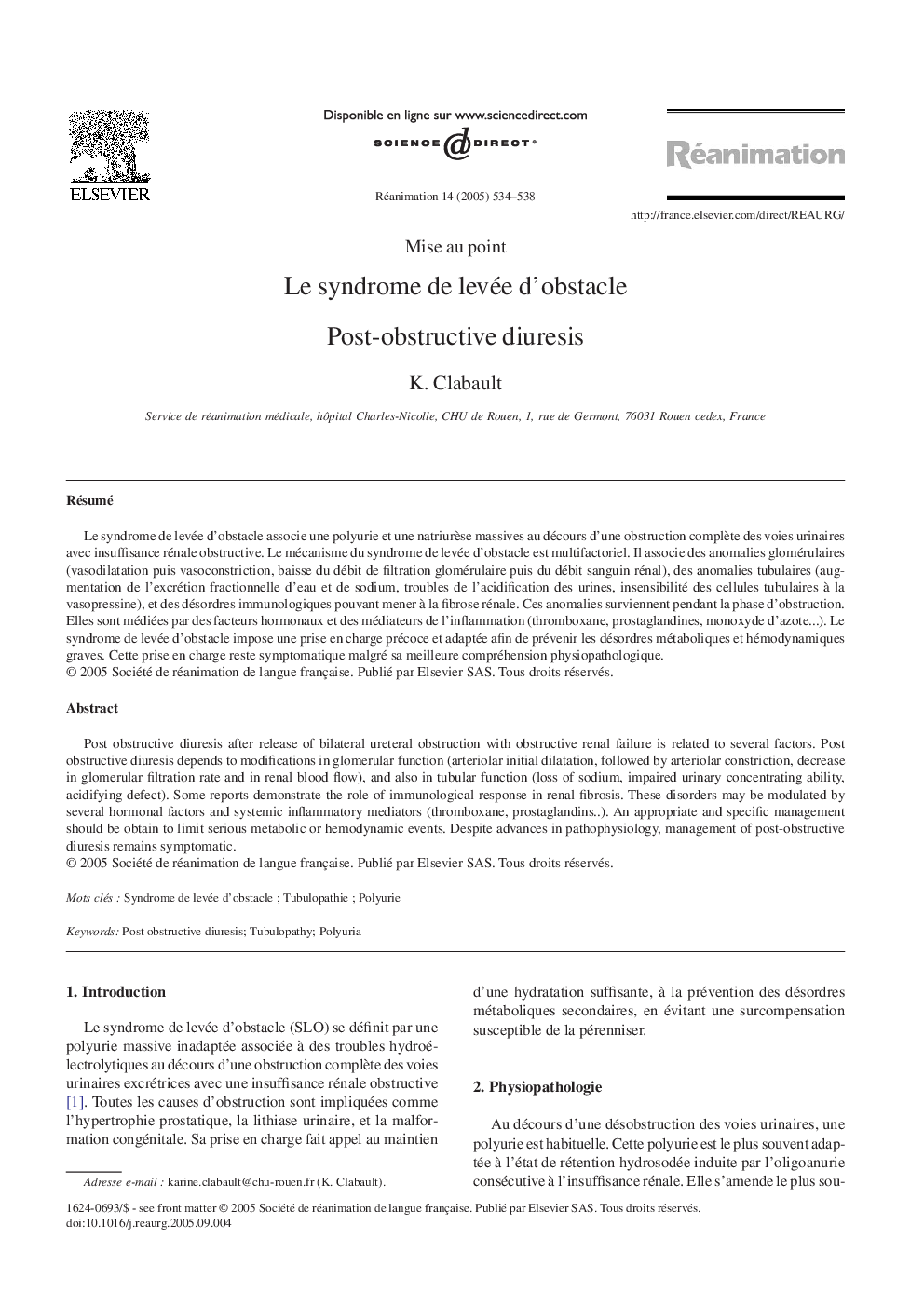| Article ID | Journal | Published Year | Pages | File Type |
|---|---|---|---|---|
| 9045206 | Réanimation | 2005 | 5 Pages |
Abstract
Post obstructive diuresis after release of bilateral ureteral obstruction with obstructive renal failure is related to several factors. Post obstructive diuresis depends to modifications in glomerular function (arteriolar initial dilatation, followed by arteriolar constriction, decrease in glomerular filtration rate and in renal blood flow), and also in tubular function (loss of sodium, impaired urinary concentrating ability, acidifying defect). Some reports demonstrate the role of immunological response in renal fibrosis. These disorders may be modulated by several hormonal factors and systemic inflammatory mediators (thromboxane, prostaglandins..). An appropriate and specific management should be obtain to limit serious metabolic or hemodynamic events. Despite advances in pathophysiology, management of post-obstructive diuresis remains symptomatic.
Keywords
Related Topics
Health Sciences
Medicine and Dentistry
Emergency Medicine
Authors
K. Clabault,
